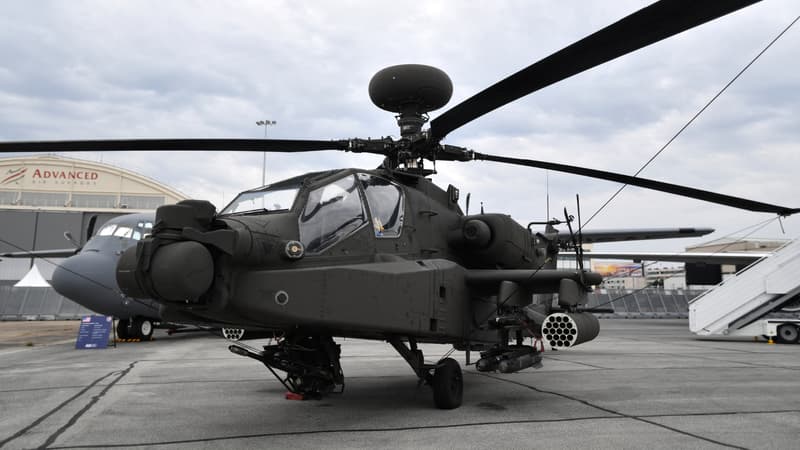Warsaw announced on Tuesday the signing of new military contracts worth more than 460 million euros during a major international defence industry exhibition that opened in Kielce, Poland.
On Wednesday, Poland is due to sign “a huge contract worth almost 1.1 billion zlotys with a Spanish group for radio-electric recognition systems, protection and security at airports,” said Wladyslaw Kosiniak-Kamysz, without giving further details. Three agreements signed on Tuesday concern communication systems, radiation detection and transport logistics.
In mid-August, Warsaw signed a deal with US company Boeing to purchase 96 Apache combat helicopters for €9.14 billion, making Poland the largest user of the aircraft in the world after the United States. The first Apaches are due to be delivered in 2028.
In addition to the supply of helicopters, the agreement includes a logistics component that provides for the supply of maintenance equipment, technical and training support, ammunition and spare parts. The agreement “changes the face of the Polish Army’s operations and complements” previous purchases, Wladyslaw Kosiniak-Kamysz said in August when announcing this contract.
NATO’s third military force
Warsaw also recently signed a contract worth €1.13 billion for the production of 48 Patriot anti-aircraft missile launchers, and another for the purchase of hundreds of AIM-120C AMRAAM air-to-air missiles, worth €783 million.
Claiming a privileged place among similar events on a regional or even “global” scale, the Kielce arms fair this year brings together 769 exhibitors, arms manufacturers and distributors, as well as national experts and officials, from all over the world, including Australia, the United States and Great Britain.
Warsaw, a NATO member and staunch ally of neighbouring Ukraine at war, currently spends about 4% of its GDP on defence, compared with the 2% required by NATO. Next year, the government wants to allocate 4.7% of GDP, a record figure of about 186 billion zlotys.
Poland’s professional army, which is undergoing modernisation, has more than 200,000 soldiers, making it the third-largest force in NATO after the United States and Turkey and the most powerful in the European Union, ahead of France and Germany.
Source: BFM TV


